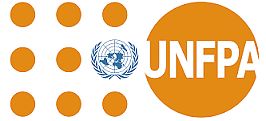خلاصہ
More than fifteen years of progressive professional experience in UN (UNFPA, WFP, UNDP) while as UNICEF, UNOCHA Third party contracts) and I/NGO sectors in project cycle management, monitoring & evaluation, Humanitarian Coordination, behavior change communication in both development and humanitarian contexts. In terms of thematic areas, substantive experience in reproductive health including family planning, HIV AIDs, Nutrition, Polio, Gender based violence, nutrition, social mobilization, WASH and education. Engage with and providing technical assistance to the relevant government institutions– Maternal Neonatal and Child Health Programme, Population Welfare Department, Director General Health Office, Provincial Aids Control Programme, and Lady Health Workers Programme in Sindh and Balochistan Provinces. Maintain strong functional relationships with national/international NGOs, and UN Agencies under one UN Programme framework as part of Delivering as One (DaO).Major Areas of Specialization 1. Programme and ME (RBM Approach) 2. Programme cycle phases (Planning, Implementation, Monitoring and Evaluation and Audit) 3. Social Mobilization / Behavior Change Communication in Education, Health, FP, Nutrition, WASH 4. Result Based Management (Logical framework analysis) 5. Environmental scanning 6. Good Communication and Networking with Government, NGOs/INGOs/Donors and other development partners and GBV actors 7. Capacity building of Implementing Partners 8. Understanding dynamics of Social Cultural Context of Pakistan 9. Implementation of different tools and techniques such as KAP Survey, PRA tool, transit walk, FGDs and LSBE Advocacy Mapping 10. Advocacy related to different policies at UNFPA/p/div
پراجیکٹس
تجربہ
District Coordinator -UNOCHA (Third party Contract)
During Humanitarian Emergencies:
1. Data Collection:
o Assist the DDMAs in collecting data during emergencies, including information on damages, casualties, resource needs, and gaps.
o Ensure data is shared promptly with the Provincial ISCG for coordinated response efforts.
2. Needs Assessment:
o Initiate and support needs assessment missions in the district and affected areas to identify urgent requirements and gaps.
3. Meeting Facilitation:
o Organize and facilitate DDMA meetings by developing agendas, drafting meeting minutes, and following up on action points.
o Ensure that meeting outcomes are communicated to all relevant stakeholders.
4. Weekly Updates:
o Share weekly updates on progress and current needs. Ensure the Provincial ISCG is informed about humanitarian needs.
o Maintain regular communication with the OCHA Focal Point to align district-level activities with provincial strategies.
5. Support to Government and Organizations:
o Assist government and humanitarian/development organizations in response efforts, including support for internally displaced people (IDPs) and their return.
o Promote accountability to affected populations (AAP) by ensuring their needs and feedback are considered in response planning and implementation.
During Non-Emergency Periods:
1. Development Activity Review:
o Conduct regular reviews and monitoring of ongoing development activities within the district. Establish and maintain communication with all line ministries at the district level.
o Ensure development activities are aligned with resilience-building goals and address the underlying vulnerabilities of communities.
2. Communication and Coordination:
o Regularly inform the RC Provincial Coordinator and the PPT Chair about any challenges or successes encountered in the district. Collaboratively identify solutions to overcome obstacles and build community resilience.
o Facilitate communication between district-level stakeholders and provincial coordination mechanisms to ensure a cohesive approach to development and disaster preparedness.
3. Ongoing Humanitarian Issues:
o Support government efforts in addressing ongoing humanitarian issues, such as drought. Build the capacity of government focal points on coordination and emergency response preparedness.
o Promote sustainable practices and resilience-building initiatives to mitigate the impact of future emergencies.
4. Resilience Building:
Develop and implement strategies to enhance the resilience of communities against future emergencies, including disaster risk reduction and preparedness initiatives.

Social and Behavior Change Officer

Social and Behavior Change Officer
National Programme Associate
Field Coordinator/Monitoring Assistant
Field Coordinator / Monitoring Unit
Programme Coordinator Sindh
District Coordinator
Programme Assistant

BCC Coordinator /Accountability Focal Point































